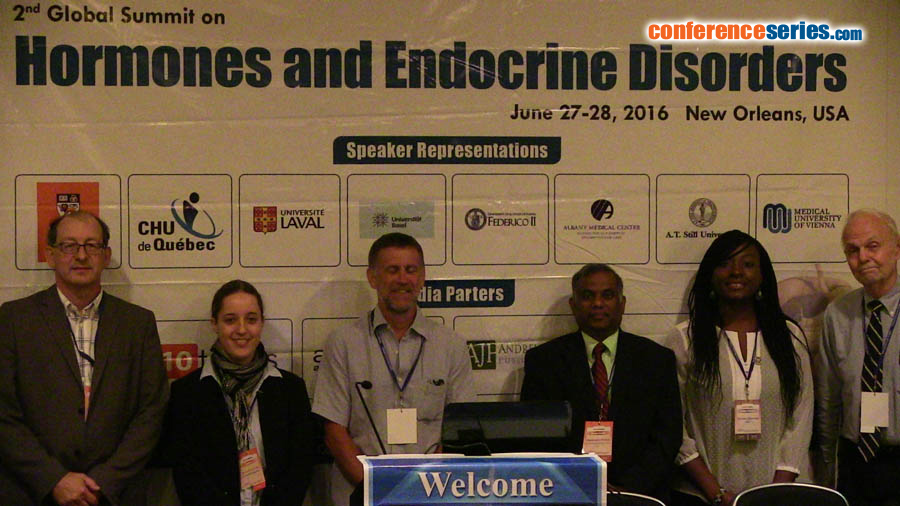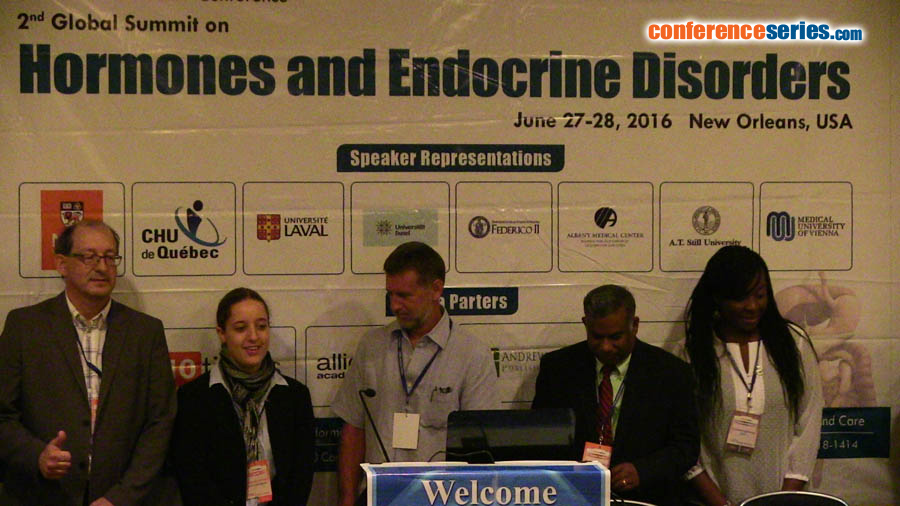Amandine Grimm
University of Basel
Switzerland
Title: Sex hormones, Alzheimer’s disease and mitochondria
Biography
Biography: Amandine Grimm
Abstract
Metabolic impairments are common hallmarks of Alzheimer’s disease (AD), and amyloid-β (Aβ) peptide and hyperphosphorylated tau protein – the two foremost histopathological signs of AD - have been implicated in mitochondrial dysfunction.
Epidemiological studies showed that women represent two thirds of AD patients and exhibit a greater vulnerability to the disease compared to men but little is known about the influence of sex steroid hormones on AD-related mitochondrial dysfunction.
Thus, we aimed to investigate whether sex hormones could attenuate the toxic effects of Aβ and abnormal tau on bioenergetic parameters, such as ATP production, mitochondrial membrane potential (MMP), mitochondrial respiration and glycolysis, in cellular models of AD (SH-SY5Y neuroblastoma cells overexpressing either the human amyloid precursor protein (APP) or mutant tau (P301L)).
After a treatment of 24 h, the majority of these steroids were effective in enhancing bioenergetic outcomes in cells overexpressing APP and mutant tau, attenuating the mitochondrial dysfunction that is present in these cell lines when compared to the respective control cells. Interestingly, testosterone (the main male sex hormone) was more efficient in alleviating Aβ-induced mitochondrial deficits, while progesterone and estrogen (the female sex hormones) were the most effective steroids in our model of AD-related tauopathy.
Thus, our results provide new insights in re-defining the biological model of how steroids control neuronal and bioenergetic functions, and may open new avenues for the development of gender-based therapeutic approaches in AD.
This work was supported by grant from the Swiss National foundation (SNF 31003A_149728) and Synapsis Foundation.



